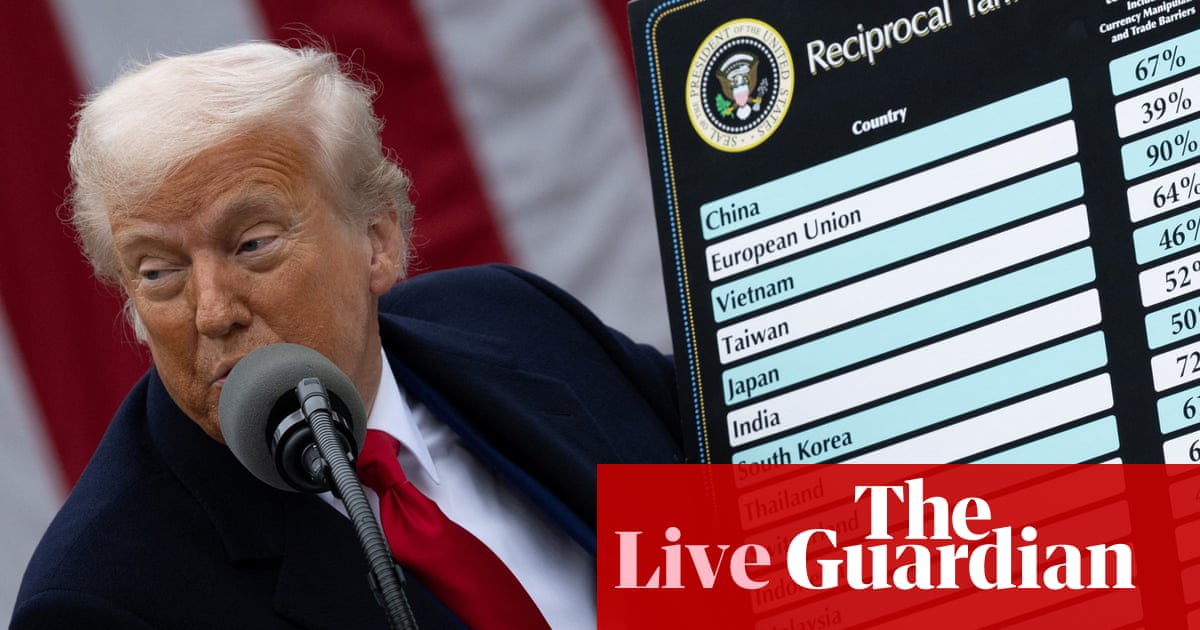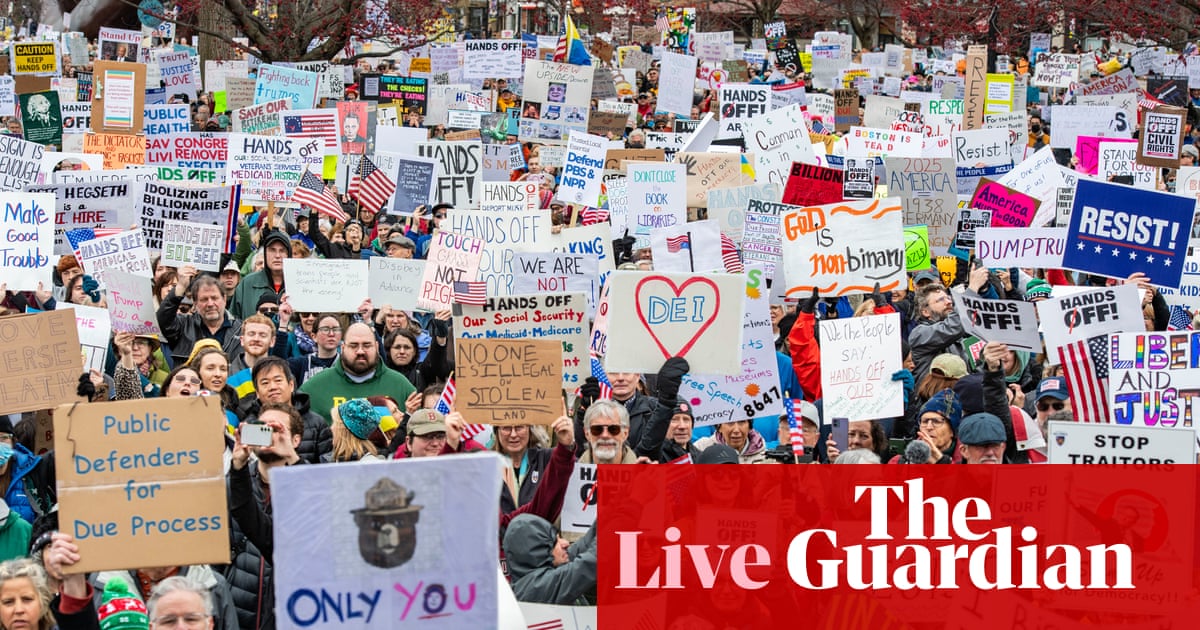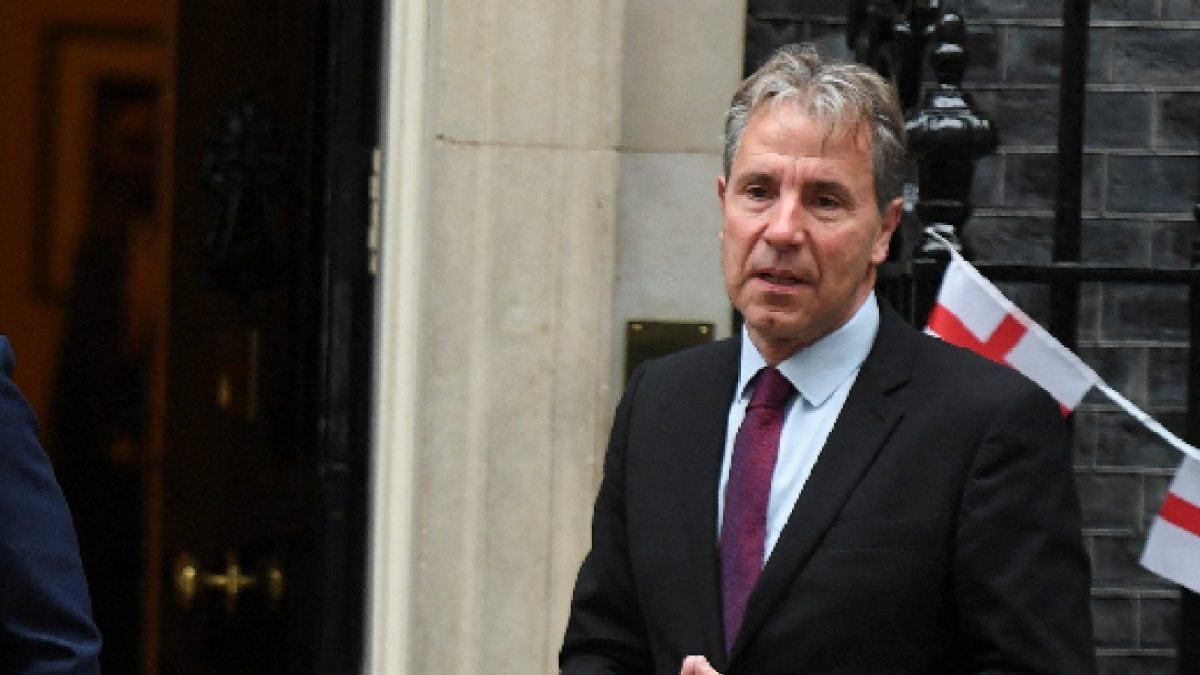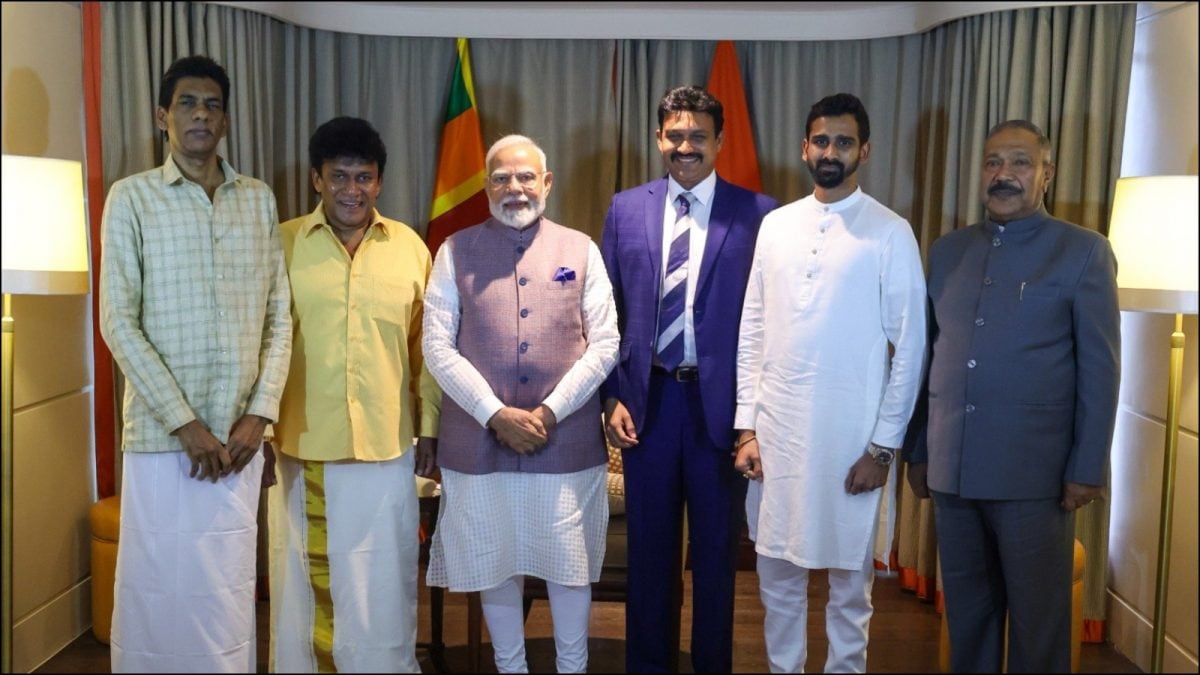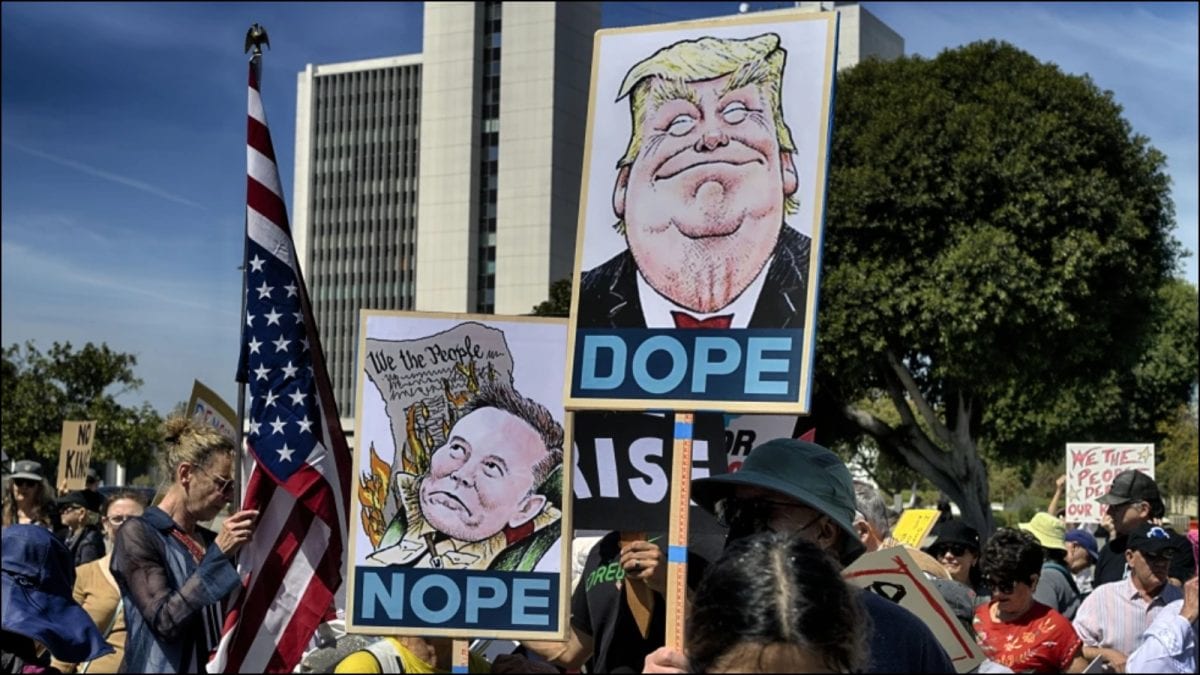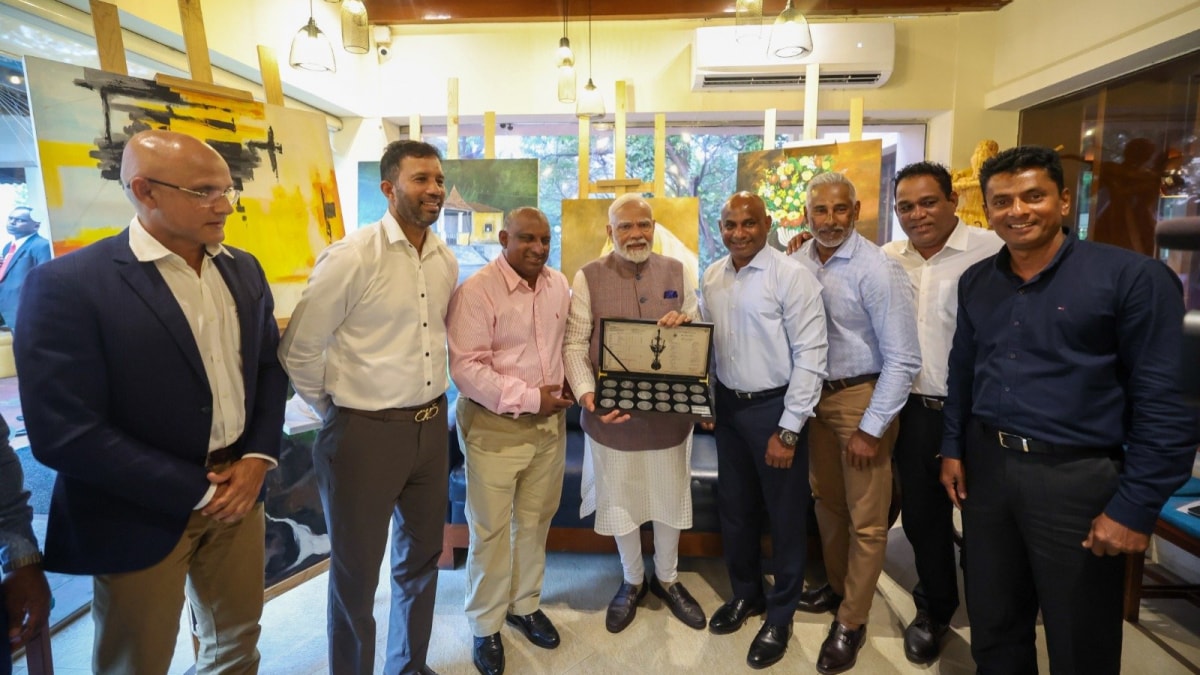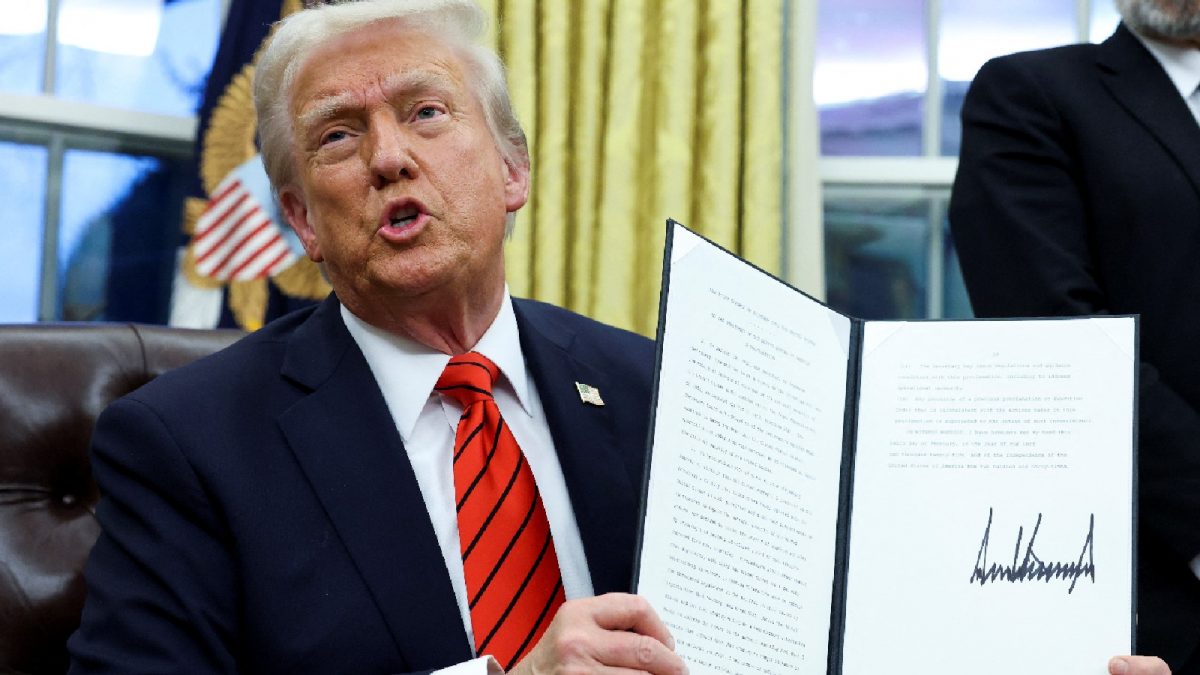Key events Show key events only Please turn on JavaScript to use this feature
Donald Trump announced sweeping tariffs on some of the US’s largest trading partners, upending decades of US trade policy and threatening to unleash a global trade war on what he has dubbed “liberation day”.
The president said he will impose a 10% universal tariff on all imported foreign goods in addition to “reciprocal tariffs” on a few dozen countries, charging additional duties onto countries that Trump claims have “cheated” the US.
You can listen to his comments in the below video:
UK's response to 10% tariffs 'will be guided by national interest', says Downing Street
Downing Street said that UK prime minister Keir Starmer spoke to Australian prime minister Anthony Albanese and Italian premier Giorgia Meloni, and had “been clear the UK’s response will be guided by the national interest”.
Issuing a read-out of their separate conversations on Friday, No 10 said the leaders “all agreed that an all-out trade war would be extremely damaging”, reports the PA news agency.
A spokesperson said the PM “has been clear the UK’s response will be guided by the national interest” and officials will “calmly continue with our preparatory work, rather than rush to retaliate”.
The spokesperson added:
He discussed this approach with both leaders, acknowledging that while the global economic landscape has shifted this week, it has been clear for a long time that like-minded countries must maintain strong relationships and dialogue to ensure our mutual security and maintain economic stability.”
It is expected that Starmer will take further calls with counterparts over the weekend.
Ministers have so far avoided criticism of Donald Trump as they seek to secure a trade agreement with the US which they hope could secure some exemption from the tariffs.
However, the government has drawn up a list of products that could be hit in retaliation, and is consulting with businesses on how any countermeasures could impact them.
Rachel Reeves said on Friday that the government is “determined to get the best deal we can” with Washington.
The chancellor said:
Of course, we don’t want to see tariffs on UK exports, and we’re working hard as a government in discussion with our counterparts in the US to represent the British national interest and support British jobs and British industry.”
The Liberal Democrats have said that the government’s “attempts to appease the White House” are not working, and called on ministers to coordinate a response with allies.
Lib Dem leader Ed Davey said in a statement:
We need to end this trade war as quickly as possible, but the government’s attempts to appease the White House and its offers to cut taxes on US tech billionaires simply aren’t working.
Instead, the best way to end this crisis is to stand shoulder to shoulder with our European and Commonwealth friends. We must coordinate our response and strengthen our trading relations with our reliable allies. That’s how we can protect our economy from Trump’s bullying.”
Trump’s 10% tariff on UK products comes into force as stock markets plunge
Donald Trump’s 10% tariff on UK products came into force on Saturday, as global stock markets continued to fall in response to the imposition of import taxes.
The FTSE 100 plummeted on Friday in its worst day of trading since the start of the pandemic while markets on Wall Street also tumbled.
Keir Starmer is expected to spend the weekend speaking to foreign leaders about the tariffs, after calls with the prime ministers of Australia and Italy on Friday in which the leaders agreed that a trade war would be “extremely damaging”, reports the PA news agency.
The initial 10% “baseline” tariff took effect at US seaports, airports and customs warehouses at 12.01am ET (0401 GMT), ushering in Trump’s full rejection of the post-second world war system of mutually agreed tariff rates.
Many other countries will see their tariff rates increase above that next week – including the EU which will be hit with a 20% rate. A 25% tariff imposed on all foreign cars imported into the US came into effect on Thursday.
'Reciprocal tariff' rates announced by Donald Trump on 2 April.‘Reciprocal tariff’ rates announced by Donald Trump on 2 April.Trading across the world has been hammered in the aftermath of the US president’s announcement at the White House on Wednesday.
Accoding to the PA news agency, London’s top stock market index shed 419.75 points, or 4.95%, to close at 8,054.98 on Friday, the biggest single-day decline since March 2020 when the index lost more than 600 points in one day. The Dow Jones fell 5.5% on Friday as China matched Trump’s tariff rate.
Beijing said it would respond with its own 34% tariff on imports of all US products from 10 April.
All but one stock on the FTSE 100 fell on Friday, with Rolls-Royce, banks and miners among those to suffer the sharpest losses.

 13 hours ago
13 hours ago



